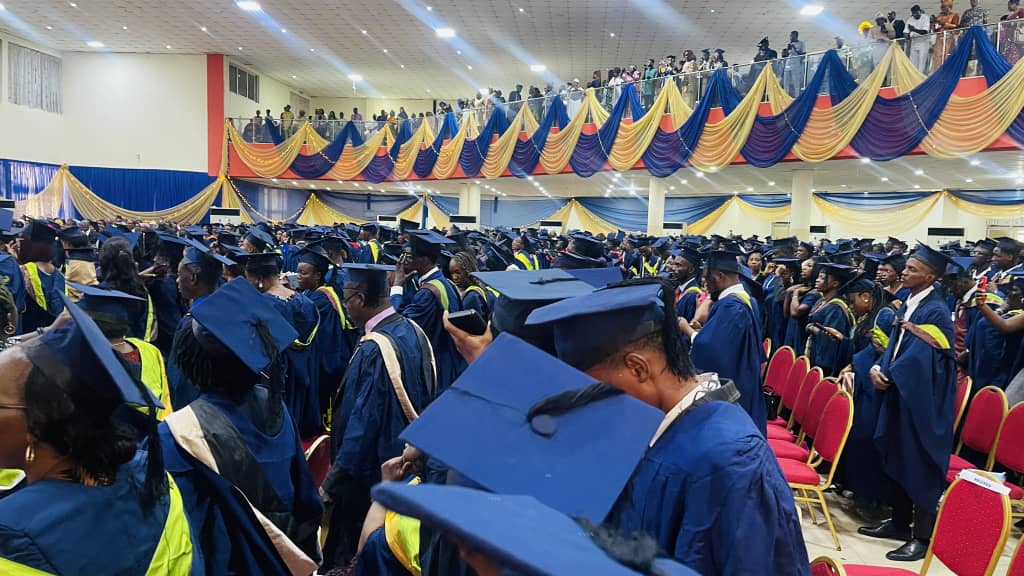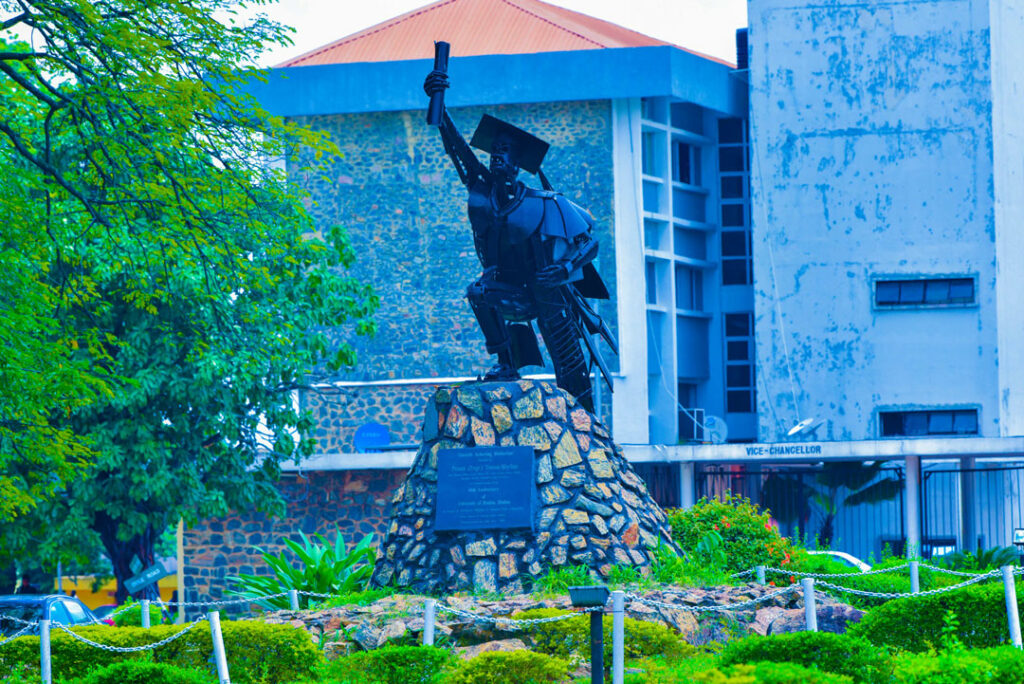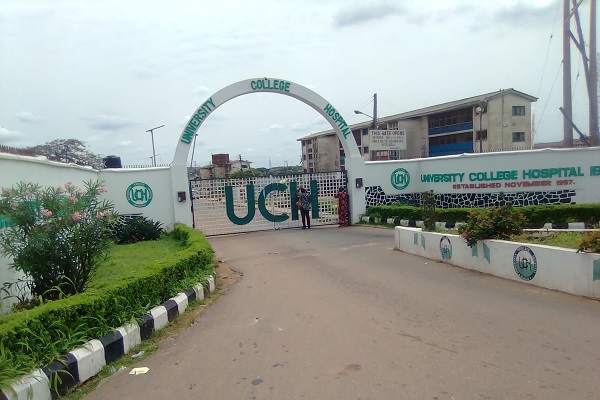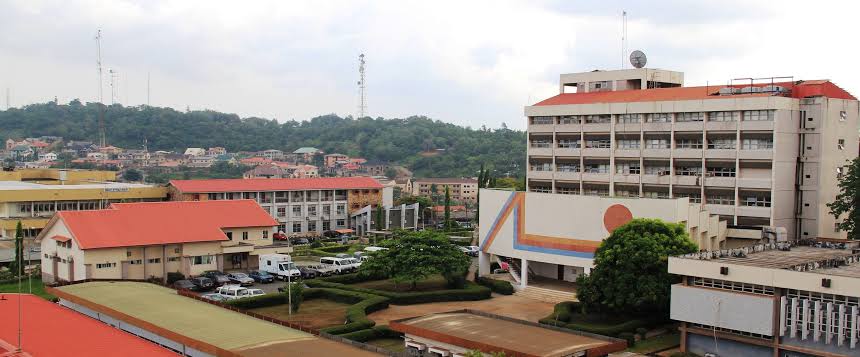Graduation: The Illusion of Progress

Academic achievement means nothing here, and the system doesn’t even pretend otherwise. In Nigeria, education is marketed as a ladder, the honest path to a better life. They say to study hard and sacrifice to excel. What they don’t mention is what waits at the top: a locked door with a forgotten key, and then the slow realization that the ladder leads nowhere at all.
Students pour themselves into a system that demands everything and gives back next to nothing. After years of sleepless nights, rising fees, accumulating student debt, and chasing CGPAs like Olympic medals, what do we earn? A handshake, a photograph, a laminated certificate and then the pass to go struggle in the wild.
Trudging blindly toward an uncertain future, we have no idea what comes next. Graduate with top honours and you may find yourself unemployed for years. Get a second-class lower, and you might as well not exist in the job market. Even those who studied “safe” courses—medicine, law, engineering—now scramble for opportunities. As for the rest? They survive on prayers, connections, or dreams of relocation.
There’s a fuming disregard for the value of academic achievement in Nigeria’s tertiary institutions. And that neglect echoes on the national scale. There’s no respect for the labour of learning, no strategy for cultivating the minds we pretend to celebrate—just a waste of effort, potential, and human resources. And yet we ask: why brain drain? Why do our best minds seek value elsewhere? Why don’t they stay to build the nation? To graduate from the country’s premier university and then remain in a country that either doesn’t count you in its census or pays you a minuscule percentage of what it costs to become employable? Please, don’t be ridiculous.
We’ve debated NELFUND and its pretensions: a loan scheme wrapped in urgency but hollow in structure. It’s money handed out now, with no clear plan for how it’ll be paid back later. Today, we discuss the disillusionment that follows academic excellence and university education in Nigeria, and how it fails to translate into real-world value or reward.
This Broken Bargain of Ours
Nigerian students are sold a promise: that hard work, a first class, or a professional course will guarantee stability. But that promise proves empty. In 2025, Nigeria’s unemployment rate is projected to stand at 4.84%, translating to roughly 5.74 million unemployed individuals. The National Bureau of Statistics, in a 2023 report, stated that 8% of individuals with post-secondary education, including graduates, were unemployed. More so, it noted that the unemployment rate among graduates is even higher than the national average—those with university degrees not as willing as those without to settle for the exploitative informal work opportunities that predominate in the Nigerian job sector.
But even these numbers don’t fully reflect reality. A vast majority of those employed face underemployment: jobs that neither match their qualifications nor provide adequate pay. The average library studies graduate becomes a school librarian, if lucky, not a researcher in an information society. The biology graduate ends up as a frustrated secondary school teacher. The education studies graduate stares into a void of no prospects. The agriculturist returns to help her mother run a shop. These courses are not without merit. But the country does not provide any pathways or purposeful industries for their application. And so, they are cast into “the rest,” while medicine, law, and engineering are glorified as the “only way.”
That is what the Nigerian state and its dysfunctional educational system have to offer. Yet the system keeps spinning the same tired tale: that education is the key, that a first-class is a golden ticket. When in fact, what we need isn’t mythology but infrastructure. Not slogans, but systems. Spaces where knowledge can be applied and thus become valuable, where investment in minds isn’t wasted. Instead, we’re all pushed into a narrow tunnel, made to compete over crumbs, while entire sectors are left undeveloped and unresponsive.
Without deliberate investment in key sectors and without expanding our industries to accommodate emerging skills, it is only natural that graduates waste away, or become locked in a brutal fight for survival in overpopulated job spaces. The few who “make it” often do so in spite of the system, not because of it.
Job uncertainty looms large, wages stagnate while the cost of living climbs, and long hours drain every ounce of energy. And so people leave, packing up their degrees and skills in search of more fertile land. The crisis, however, is not a shortage of professionals, but a systemic failure: poor workforce planning, weak regulation, and employment structures that don’t work. And we still ask: why brain drain? No, why not brain drain?
But of course, they only respond in the ways they know how: asking us to sacrifice for a system that never has for us. They say it’s our duty to build the nation and hold us back with policies that force us to stay—desperate attempts to keep us stuck in the same deadly cycle with no incentives. This is not a reward system, it is a control system—one that spins patriotism out of exploitation and demands gratitude from the students it continues to shortchange.
Escaping the grip of this system is painfully difficult because it leaves so few exits. And so, the uncertainty that trails postgraduate life becomes a rite of passage for the Nigerian student. The choices are narrow and painfully familiar: choose a “safe” course, often not out of passion but out of fear. Study abroad if you can afford it. Otherwise, you pick up side hustles to cushion your primary effort, or accept a low-paying job completely unrelated to your degree.
Education in a Vacuum
This is a problem of a country that underinvests in its young people while demanding everything from them. A country that calls us “the leaders of tomorrow,” but gives us no space to lead. We see a culture that loves to praise brilliance but refuses to fund it. There’s the occasional media frenzy over a first-class graduate, a celebration of excellence with fanfare, but never with infrastructure. Recognition without empowerment.
There is a disconnect between what our universities teach and what the labour market actually needs. That gap fuels both unemployment and underemployment. The few who manage to get jobs within their field often find themselves unprepared, not from a lack of intelligence, but from a system that offers theory instead of practice.
Even the “safe” degrees are starting to feel unsafe. Engineering without industries. Medicine without hospitals. Education without properly funded schools. The country does not just underpay professionals—it underbuilds the very systems in which they are meant to function. The humanities and social sciences fare worse, sidelined in a country that undervalues critical thinking and creative inquiry. We are told to study “serious courses,” but when even those can’t guarantee stability, where exactly do we turn?
This is not about a single school or sector. It is about a nationwide failure to prepare, protect, or propel its future. Still, the narrative stays the same: that our suffering is due to a lack of effort, that we are not trying hard enough. But how do you grind your way into a job that doesn’t exist? How do you network into an industry that hasn’t been built? The government tells us to innovate, but offers no funding, no broadband, no incubators. They tell us to start businesses, but give no access to credit, no power supply, and no stable market.
A Failing Rewards System
When we narrow our lens to Nigeria’s premier university, we begin to see a small-scale reflection of the broader national crisis. At the University of Ibadan, the “first and the best,” the focus has shifted from rewarding excellence to punishing defaulters—no carrot, only the stick. While the student handbook now fines undergraduates up to ₦5000 for road traffic violations and has removed its previous ₦1000 cap for other offences, its scholarship and bursary allocations still quote ₦500 for books, as though inflation skipped the campus gates. The majority of graduation prizes were instituted in the past, when ₦30 or ₦1,000 seemed like a respectable sum. But today, many of those prizes remain frozen in time—unadjusted, unamendable, and practically symbolic. But then, is it truly impossible to create new awards that reflect today’s value? Or is it just that the will to do so no longer exists?
This is a university that prides itself on rigor and prestige. And indeed, it is rigorous. It is demanding. But one must ask: what do the students feel on the other end of this? Are they actually being prepared for the world beyond school? Do they feel empowered, or merely drained? Because, alongside the lack of meaningful financial recognition, students also face a void in entrepreneurial support, career counselling, and postgraduate guidance. The truth is that the university fails to properly invest in or reward excellence in a meaningful way. And that erodes morale. It signals that the system isn’t built to honour student effort, only to extract it.
Still, thankfully, not all hope lies within the university administration itself. Others have stepped in where the school has stalled. At the Veterinary Medicine induction on June 3rd, for instance, outstanding students received cash prizes of up to $750. At the Faculty of Nursing induction on June 4th, the top 10 graduates were promised automatic internship placements. Even the Muslim Students’ Society of Nigeria (MSSN) awarded substantial cash prizes to their top 10 graduating students across faculties.
But the fact remains: these are not institutional rewards. They are offered by external bodies, not the university itself. And that’s the problem. Incentives like these that reflect real economic value, placements tied to performance should not be rare or extraordinary. They should be institutionalized. Students shouldn’t have to rely on the charity of religious associations or faculty alumni to feel that their work matters.
Is money the point of learning? Not necessarily. Perhaps we should be above it, be content with the medals and certificates, with the abstract glory of “first class,” and being “the best.” But let’s not pretend these things don’t cost us. Let’s not pretend that excellence doesn’t come with a price—emotional, financial, and physical. If a system demands your blood, the least it can offer is dignity in return. If the university can regularly increase its fines and expand its sanctions, why not raise its rewards? Why must discipline evolve while reward remains static?
What is one to expect when the disregard starts in the schools and extends outwards? We exist in a crumbling country where the so-called citadels of learning set the precedent for undervaluing excellence. If the school itself fails to reward achievement, what hope does the outside world offer?
Conclusion
Then there’s the next demoralization that begins after graduation. For the average Nigerian student, the transition to postgraduate life is not marked by uncertainty. After all the discipline, rigour, and supposed prestige of institutions like the University of Ibadan, many graduates are met with silence from the job market. Years of hard work begin to feel like a gamble. Because the truth is, a degree, first class or not, offers no shield in an economy that is neither prepared for its graduates nor invested in their growth.
A student pressured to take on a loan just to remain in school is pushed to finish it with nothing waiting on the other side. And then the debt grows like life itself doesn’t have other costs to demand.
What we need is a reform of institutional reward systems, to incentivize excellence with support that affirms its value. We need real pathways from classroom to career: proper counselling, structured internships, functional industry partnerships. But beyond that, we must actually build those industries to be capable of absorbing the people we so proudly educate.
And just as crucially, we must shed the myth of one-size-fits-all success. Not every graduate will follow the same path. Our systems must be flexible enough to support multiple definitions of success: academic, vocational, corporate, and creative. Because until we do, graduation will remain the beginning of struggle, not progress.




